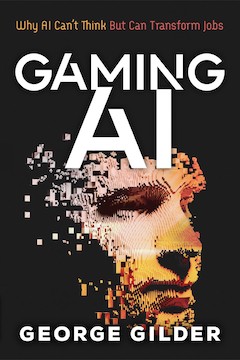About the Book
Pointing to the triumph of artificial intelligence over unaided humans in everything from games such as chess and Go to vital tasks such as protein folding and securities trading, many experts uphold the theory of a “singularity.” This is the trigger point when human history ends and artificial intelligence prevails in an exponential cascade of self-replicating machines rocketing toward godlike supremacy in the universe. Gaming AI suggests that this belief is both dumb and self-defeating. Displaying a profound and crippling case of professional amnesia, the computer science establishment shows an ignorance of the most important findings of its own science, from Kurt Gödel’s “incompleteness” to Alan Turing’s “oracle” to Claude Shannon’s “entropy.” Dabbling in quantum machines, these believers in machine transcendence defy the deepest findings of quantum theory. Claiming to create minds, they are clinically “out of their minds.” Despite the quasi-religious pretensions of techno-elites nobly saving the planet from their own devices, their faith in a techno-utopian singularity is a serious threat to real progress. An industry utterly dependent on human minds will not prosper by obsoleting both their customers and their creators. Gaming AI calls for a remedial immersion in the industry’s own heroic history and an understanding of the actual science of their own human minds.





